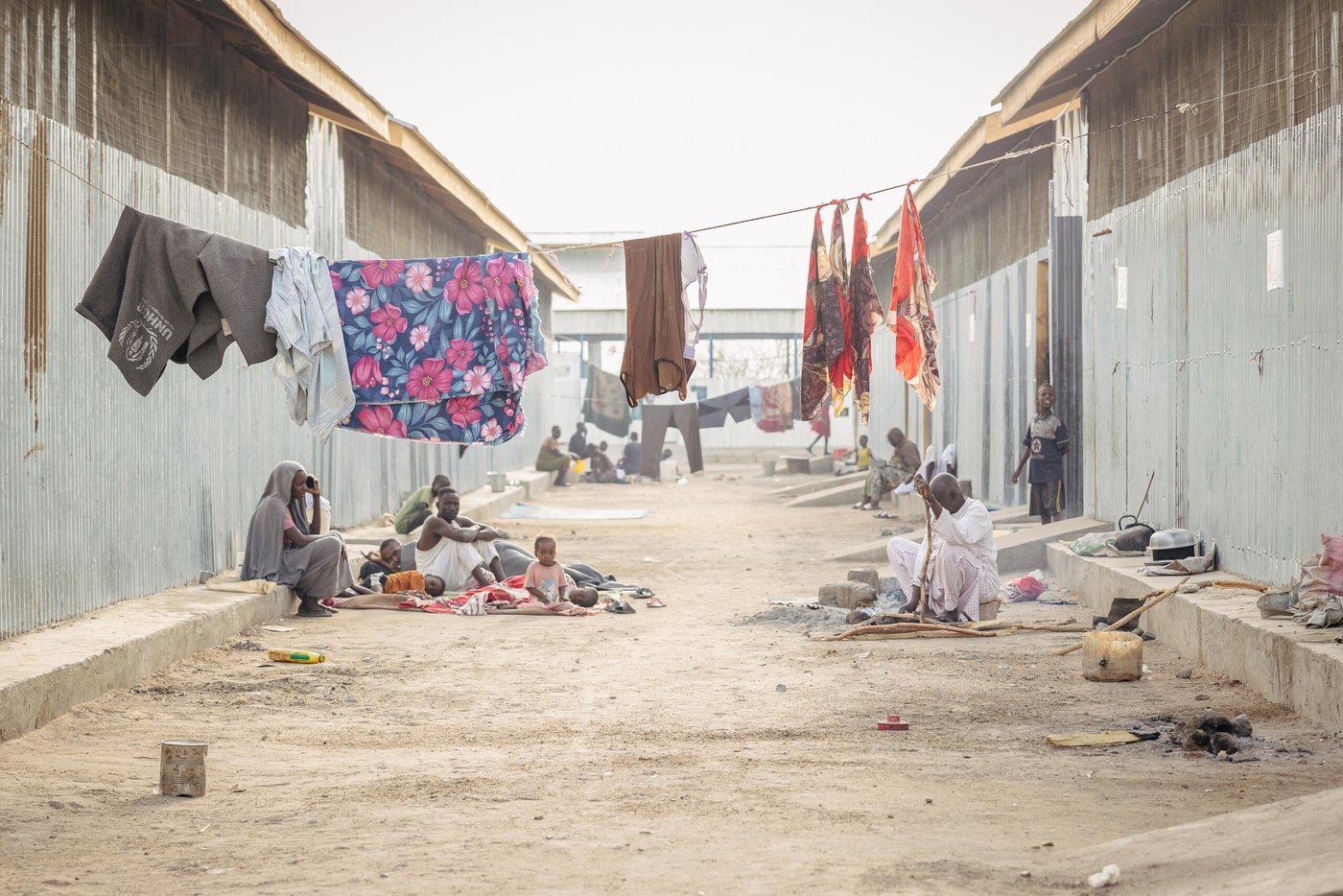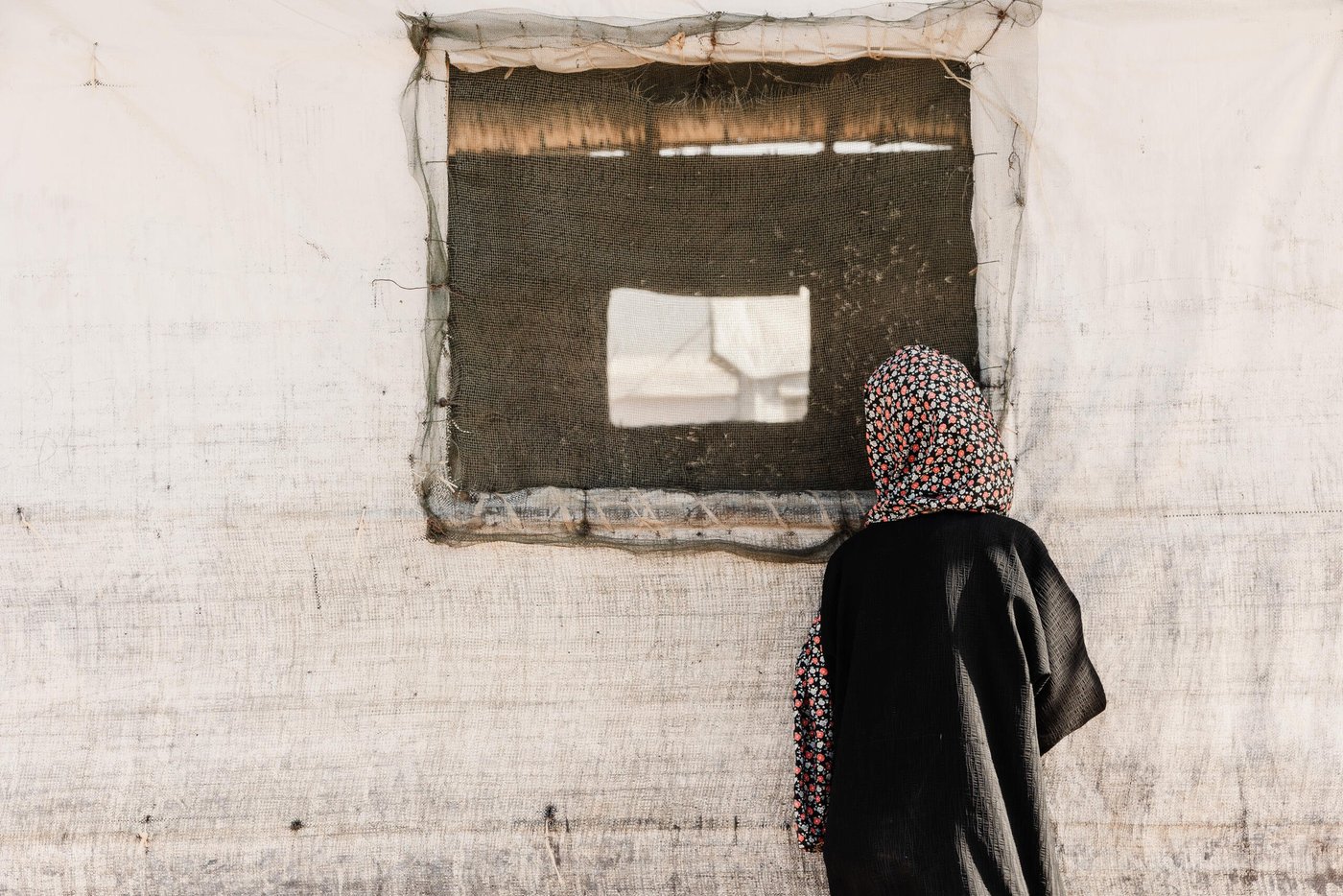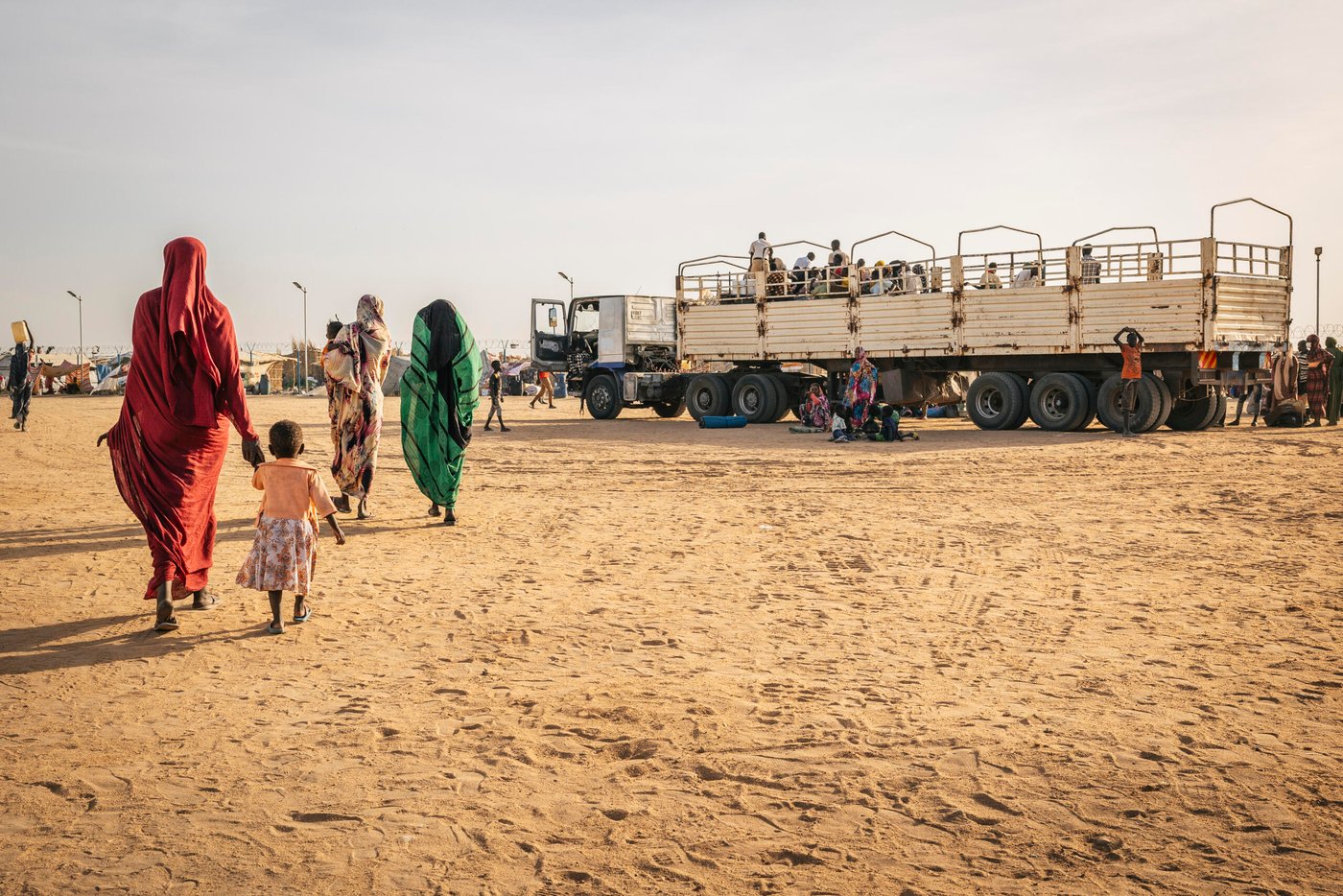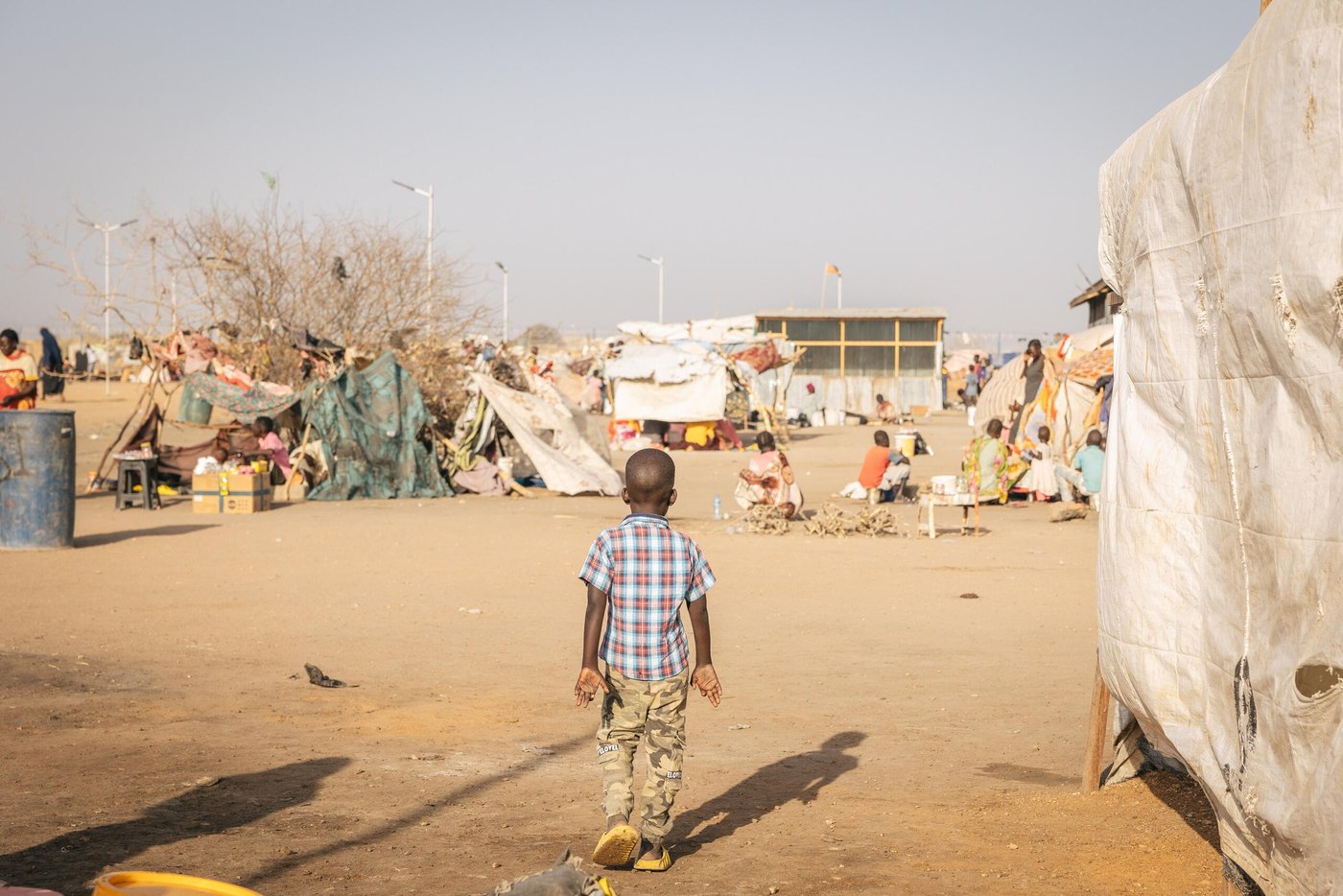The heat in Renk hits like a wall. By midday, the air is heavy and unrelenting, the sun glaring down on the endless line of trucks pulling up to the South Sudan border.
I was there when 17 trucks arrived from Sudan, each packed with exhausted and terrified people. It's now a daily event whereby truckloads of refugees, mostly women and children, are brought here after having travelled for days, some for weeks, across a brutal landscape scarred by fighting and loss.
They stepped down from the trucks slowly, clutching small bundles or plastic jerrycans, the few possessions they had left. The relief of having reached South Sudan was visible on their faces, but so was fear. For many, safety remained uncertain.
Since Sudan’s devastating war broke out in 2023, more than 1.2 million people have fled across the border into South Sudan. Around two-thirds have come through Renk, a small town that has become the main entry point for those escaping the conflict.

“It is now our home, but there is nothing”
The Renk Transit Centre was meant to be a temporary stop. Today, it has become a sprawling settlement, where thousands of people live in limbo, trapped between war and survival. “This is not a transit centre, it is now our home, but there is nothing,” says Ibrahim*, a Sudanese refugee who arrived in 2023. “Violence is increasing, mostly driven by hunger and desperation, there is simply no food here. We have seen people die from hunger around the centre.”
Shelter services are stretched beyond capacity while collective sites are significantly overcrowded and present new risks, particularly for women and girls. Mosquito nets have run out despite rising malaria cases. The Norwegian Refugee Council (NRC) has received reports of mothers with newborn babies sleeping in latrines to escape the rain and find a semblance of privacy.

“They prefer to die in their own country”
Even after reaching South Sudan, some refugees are forced to take the unimaginable step of going back into Sudan in search of food and water.
Aisha is a woman of South Sudanese descent who had made Sudan home.
“People have taken the risk to return to Sudan given that there is food and water there,” she says. “Since they don’t have money, they say now it is better to go back to suffer in Sudan because the situation is the same. They prefer to die in their own country if they are going to die.”
Their words are a stark reminder of the desperation people face: fleeing war only to find hunger, disease, and neglect waiting across the border.
A dangerous journey
The road from Sudan to Renk is perilous. Refugees spoke of being stopped and extorted by armed groups and criminal gangs along the way. Those unable to pay were beaten, shot, or subjected to sexual violence. Others were forced into debt, leading to exploitation and forced labour once they arrived in South Sudan.
Protection monitoring by NRC Sudan found that 57 per cent of people experienced violations on the road, while the remaining 43 per cent faced them at checkpoints.

The cost of neglect
Despite the best efforts of humanitarian organisations, assistance has been stretched far beyond capacity. The humanitarian response in South Sudan is just over 30 per cent funded, part of a wider global crisis where seven in 10 people in need are not receiving the help they require.
At the Renk Transit Centre, some new arrivals receive one-time cash assistance of about USD 15, and that is all. With aid agencies scaling down due to lack of funding, hunger, disease and violence are spreading. Cholera cases are rising as health services collapse.
Women and girls who survived sexual violence on their journey remain at risk in Renk due to the absence of safe shelters and livelihoods. NRC and partners continue to provide protection, mental health and psychosocial support, but services are under-resourced and overwhelmed.
A worsening regional crisis
South Sudan is facing its most perilous moment since independence in 2011. The war in Sudan, coupled with political instability, flooding, and food shortages at home, has pushed 9.3 million people into humanitarian need. Of these, 7.7 million face acute food insecurity, with 83,000 at risk of famine.
With little hope of peace and dwindling humanitarian funding, the crisis is deepening not just in Renk but across the region.
When people flee “hell” and find only hunger and despair, it is not just a failure of aid, it is a failure of the world’s responsibility to protect.
*Names have been changed to protect people's identity
Key facts and figures:
-
Over 1.2 million people have fled from Sudan into South Sudan since 2023, including both Sudanese refugees and people of South Sudanese origin.
-
Around 67 per cent, about 800,000, have passed through Renk.
-
9.3 million people in South Sudan need humanitarian assistance,
-
7.7 million people are suffering from acute food insecurity, and an estimated 83,000 people are at risk of famine.
-
The humanitarian response in South Sudan is only 30 per cent funded.
-
Over 1.9 million people remain internally displaced due to years of violence and the impact of climate change, including floods and prolonged dry spells.
-
In September and October, floodwaters have engulfed large parts of Jonglei, Upper Nile, and Unity states, affecting 379,200 people in 21 counties across five states and displacing around 135,300 people, many of whom had already fled their homes earlier this year due to escalating conflict since February 2025.
Sign up to our newsletter for regular updates on the global refugee situation.


